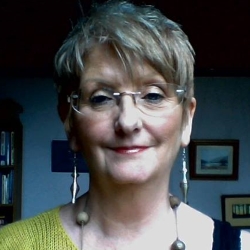Enter your email below so we can send you a daily 'Thought For The Day clip to your email
It's not an exaggeration to say that the Polyvagal Theory has revolutionised the way that we see the body in relation to therapy, particularly in trauma. At its basis, it explains how the nervous system responds to detecting safety or threat in the environment, including the internal environment of the body. Knowing this gives us a more complete way of understanding our reactions, behaviours, emotional responses, and how we relate to each other as social animals.
The theory has been applied in many different areas of therapy and medicine: ranging from how we understand grief and loss to looking at therapeutic presence and effective therapeutic relationships. From applying it in new-born intensive care units to explaining some of the ancient contemplative practices like yoga and chanting.
In this interview, Maggi McAllister-MacGregor discussed some of these applications in relation to therapeutic work and how working in this way can produce more effective results with clients. She also talked about some of the workshops that she is developing with Online Events to bring some of these exciting new developments to your practice.
Neuroscience Workshops:
Neuroscience for Effective Clinical Practice – Maggi McAllister-MacGregor
About Maggi McAllister-MacGregor
My interest in neuroscience has spanned 4 decades, from my first degree in the early 70's, when neuroscience was in it's infancy, and a lot of what we knew was on a cellular and structural level, and much less was known about function at that time. My degree was in optics and visual sciences, which included anatomy, physiology, pathology, and pharmacology. It also covered visual perception, so there was a cross-over with psychology as well.
In the mid 80's, I made a career move to massage and sports therapy, which obviously had a body focus. I was also interested in sports psychology, particularly in how visualisation could be used to enhance sports performance.
One thing that I found in my body work was that often clients would have an emotional release during the work. And I've experienced this first-hand myself as a client.
From all of this, I knew the brain (mind) - body link was real. Neuroscience backs this up.
The experiences that my massage clients were having got me interested in doing a psychology degree, but I was disappointed to find a big body – mind split. Emotions were largely discounted, and the idea of 'body memories' was dismissed – but remember, this was in the 90's when neuroscience was just beginning to forge some credibility within the sciences. I 'knew' about the mind – body connection from my work with clients and personal experience, but anecdotal or experiential evidence is not acceptable 'proof'. I decided that psychology wasn't a route that could support me in my exploration, so that was when I decided on counselling as a better fit for how I wanted to work.
That led me to a Counselling Skills course, and then a Diploma in Counselling from Strathclyde University that I completed in 2000.
My client work since then has been in different areas – bereavement, childhood sexual abuse, anxiety, and depression, both in GP and private practice. I work entirely now in private practice and offer training for therapists.
Over the years, I've honed my interest to working with stress, anxiety and trauma, and how these affect relationships. I'm increasingly integrating my understanding of neuroscience and the body into my work.
I'm a Certified Clinical Trauma Practitioner and have completed training in Emotion Focussed Therapy levels 1-3, Couples' Therapy, Neuroscience in Therapy, and Supervision.
I was a trainer on the PG Diploma in Counselling & Psychotherapy between 2005-2018, and the PG Certificate in Counselling Skills 2014-2016.
